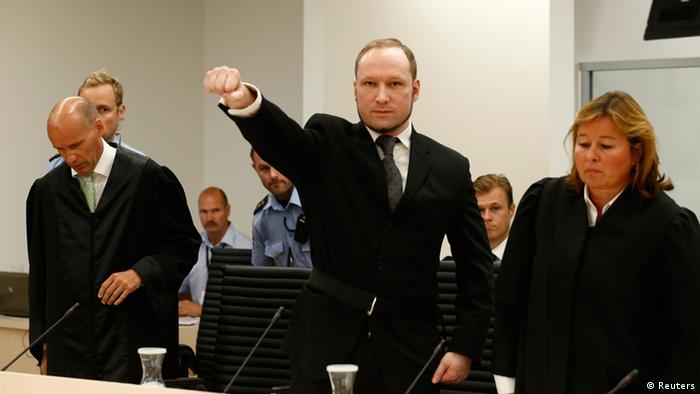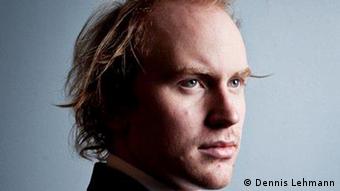'Extremism across Europe is interconnected'
EXTREMISM
'Extremism across Europe is interconnected'
The attacks by Anders Breivik on July 22, 2011 in Oslo and on the holiday island of Utoya were Norway's greatest postwar trauma. Bjorn Ihler was one of the survivors and talked with DW about the consequences.
Deutsche Welle: The massacre was three years ago and the trial, which you also attended, was two years ago. How do you feel about it today?
Bjorn Ihler: I'm much better today than I was during the inquest and during the trial. Today, I'm traveling around and working actually against Nazism and right-wing extremism. And that, of course, draws on some inspiration from what I experienced. But I'm still able to live my life and stay in control over what happened.
How strong are your memories of that day?
Well, the memories are there and probably always are going to be there. But they are not bothering me any more, if you like.
On the day of the massacre at Utoya, you saved the lives of two boys. Are you still in contact with their families?
Not that actively. I have some contact with their relatives on Facebook and things like that. But I'm leaving the boys alone for now. They know they can contact me if they want, as now I think I'm still a reminder of the trauma for them. And therefore I respect them and leave them alone.
What kind of impact does the massacre have on your life today - do you feel like having a mission or making the world a better place?
Well, I do have that mission. I think I've had some version of that mission, regardless of what happened. I think I still would have worked actively against racism and for peace and all that. But it does, of course, give a special focus to it and I do draw on my own experiences in my work.
After that drama, Norwegian society talked a lot about openness and more democracy. Where would you say Norwegian society stands today?
I would say that was mostly for show in my experience. Straight after, it started trying to make new laws to imprison people for a longer time, which is of course extremely undemocratic. The Labor Party, asked me to send everything I wrote for newspapers to their central leadership for censorship, which is also extremely un-open and undemocratic. They said nice things but they didn't follow up.
You're disappointed?
Yes.
Has what happened in your country also had consequences for the rest of Europe?
It does, of course, have consequences for Europe. Right-wing extremism across Europe is interconnected. The extremists are in communication and we see that, for instance, in the correspondence between Breivik and Beate Zschäpe in the NSU trial. We also see they have the same ideological background. We all work internationally against it, because they work internationally for it.
Did Breivik do something that changed they way we see migration? Or should we change the way we see migration?
I don't think he changed the way we see migration at all.
Could you explain why?
Because I think Breivik and people like Breivik saw migration the way they saw it anyway. And because the rest of the population sees migration the way they see it. To some extent, the majority's way of seeing migration justifies Breivik's way of seeing migration by always speaking about tolerance and how we have to tolerate this thing that has been forced upon us. I don't think many people changed their views when it comes to this because of Breivik.
When you where in Munich in July, you also attended the trial of Beate Zschäpe. What was your impression?
My general impression was that it went into much deeper detail than the Breivik trial did. It has of course lasted for much longer and is a much more complex case because it covers several incidents. But on that basis it was quite similar in many ways.
Are there any parallels between the crimes Breivik and the NSU committed?
Yes, there are definite parallels in ideology and the background against which they carried out their crimes. And there is an ideology in the background we have to actively work against because we see similarities both in Germany and in Norway, and all across Europe.
And where, would you say, are the differences?
One major difference is that Breivik attacked the majority of the population, if you like. He attacked young white people. The NSU attacked mostly Turkish immigrants. So, that is a definite difference but they all did it because of the same political goals.
Bjørn Ihler, 22, was on the holiday island of Utoya on July 22, 2011 when Anders Breivik shot dead 68 people, many of them teenagers, at a gathering of the Social Democratic Party. As he escaped, he brought two boys, eight and nine years old, to safety. The young Norwegian is an anti-racism activist in the Social Democratic youth association and writes for the Norwegian newspaper "Aftenposten." He studied theater at the Liverpool Institute for Performing Arts. dw de


Comments